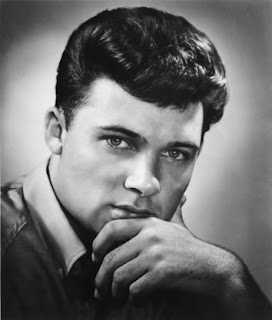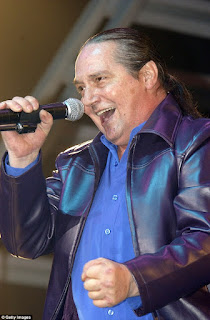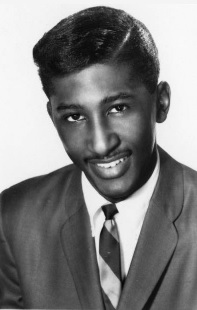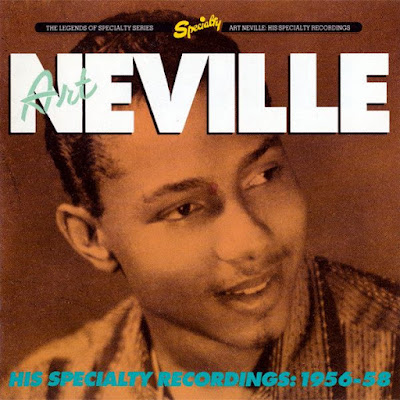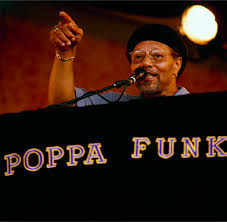Chase Webster (born 23 December 1938) is a Country and rockabilly singer and songwriter of whom national chart prominence and recognition alluded him throughout his distinguished career in pop and country stretching from the late 50's to the late 80's.
Surely one of the most inexplicable events in the history of American popular and country music is that Chase Webster is not a household name right across that nation, and indeed abroad. Having said that his output is now highly sought after worldwide if prices on-line are any indication. In terms of being a star, Chase, born Gary Daniel Bruce in Franklin Tennessee, of Scottish and part Cherokee descent, had it all.
As a child Chase was influenced by his father who was a dancer and musician, favouring blue grass and country, and who bought Chase his first guitar when he was aged ten. Chase learned to play and whilst in high school and working nights in a factory ran the streets of Nashville trying to get a deal. He kept pestering people and finally around 1960, thanks to disc jockey Noel Ball got a deal with Southern Sound records. Out of the recording session came a self-penned song issued around March 1961, Moody River, which soon went to No 1 in the southern charts.
Regrettably Southern Sound, a little like Sun records in Memphis, did not have the financial and influential clout to take the hit nationally and it was covered by Pat Boone, who had a world-wide major hit with it. Since then it's been covered numerous times, by the likes of Johnny Burnette, Johnny Rivers, Frank Sinatra, several country acts and latterly by John Fogerty. Chase moved on to Dot where he cut at least twelve numbers, ten released and two still 'in the can.' All of the released tracks are highly enjoyable slices of early 60's pop.”Like I've Never Been Gone” from 1962 was also recorded in the UK by Billy Fury where it it became a Number 3 hit.
Whilst living and working in California and on a night out with Dot and Randy Wood, the head of Dot records, Chase met the sadly quite recently deceased Clint 'Cheyenne' Walker, the childhood hero of so many people worldwide, not least in the UK. Chase made several radio appearances and together with many other live shows was part of two tours organised by the legendary Dick Clark, regrettably never made it onto Bandstand due to lack of a national hit.
The artists with whom Chase once worked reads like a veritable who's who of American music and Western stars. It included, among many others, Johnny Cash, Jerry Lee Lewis, the Everly Brothers, the mighty Arthur Alexander, Jackie Wilson, Dan 'Hoss' Blocker and 'Little Joe' Landon. Chase once met Elvis, being invited to attend a movie show in a rented theatre in Memphis around 1962/63, and also watched Roy Orbison record.
A period with the famous Cameo label resulted in two singles, “Where Are You” and “Cry, Cry, Darling,” After which a spell on the Hickory label brought some nice country/pop singles. A move to Showbiz saw five 45's issued. The standard of these recordings is very high and why they failed to really dent the country charts is a mystery.
There was an excellent county album recorded during the mid 60's, featuring a mixture of songs written by Chase and country classics. Strange Places and Strange Faces, one of four numbers penned by Chase, is an especially standout track. It was recorded to sell at 'gas' stations and gigs, and has appeared on at least two labels.
A fine baritone voice in the Elvis mould, but distinctive in its own right, the ability to write some great songs, coupled with matinee idol looks; all of which should have guaranteed the great national chart prominence that alluded him throughout his distinguished career in pop and country stretching from the late 50's to the late 80's.
An anomaly was the release of Twenty Wasted Days on the Country & Western label out of Nashville, and crediting the vocal by Chase as being one Jack Rogers. The final stab at recording came with the 'country-disco' novelty number, Bell Bottomed Trousers, also written by Chase and released on the Battlewood label.
He then retired to farm just outside his native Franklin, apart from undertaking occasional benefits such as the one for his great friend Del Reeves, host of the highly successful TV country music show Country Carnival on which Chase was resident anchor artist for about two years.
It would be ideal if the world could enjoy a double CD album of all of Chase's fine body of work, re-mastered, but finding the masters has proved challenging to Chase. As the film clips show he was a class act and his fine body of work is living proof of that.
(Edited from The Chase Webster Story by Chris Eley.)

